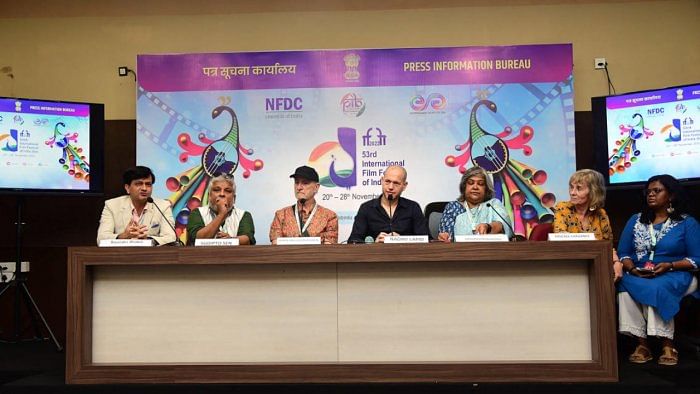
The movie The Kashmir Files has again landed in a controversy with a critical comment made about it by Nadav Lapid, the Israeli chairman of the jury of the International Film Festival of India (IFFI) in Goa, and as a response to it, an apology by the Israeli Ambassador to India Naor Gilon on behalf of his country. The film was an entry in the prestigious festival, which has over the years won international recognition for the high quality of its entries. Lapid strongly criticised the entry of The Kashmir Files and described it as “vulgar propaganda”. He said that while 14 of the 15 films in the competitive section evoked vivid discussions among the jury members, the 15th entry, The Kashmir Files, was shocking as it was “like a propaganda, vulgar movie, inappropriate for an artistic competitive section.”
The controversy over Lapid’s comment and protests over it were entirely unnecessary because as chairman of the jury he was entitled to express his views about the film. The protests came from various quarters, including the ruling BJP and its IT cell, which had tried to make political gains from the film and which even found parallels between Lapid’s comment and the description of Schindler’s List, a film on the Holocaust, as a propaganda film. The Kashmir Files is about a period of targeted killings of Kashmiri Pandits by terrorists and the resultant exodus of Pandits from the Kashmir Valley in 1990. While the killings and exodus of Pandits are known and widely reported facts, the film’s depiction of them has been criticised as partisan and ill-intended. The crudeness and artistic inadequacies of the film have been pointed out earlier and the BJP’s own promotion of it had clearly exposed its propaganda nature. Lapid, a director and screenwriter of international eminence, has only pointed out these, and as chairman of the jury, he was entitled to his opinion and to express it. He had no political axe to grind in this country, and his comment only shows that a discerning person saw the film more as propaganda than art.
The attack on him was unwarranted and again smacked of the intolerance for contrary views that has become the norm. The Israeli Ambassador’s apology was also unnecessary because the issue at hand was not a diplomatic issue and had no bearing on India-Israel relations. Lapid was speaking as a filmmaker and chairman of the film festival jury. The Ambassador did not have to criticise him for “abusing” his hosts’ hospitality nor did he have to tender an apology on behalf of the people of Israel. Lapid’s comment was only about art and should only have been taken as that. It was unnecessarily politicised and made a diplomatic issue.